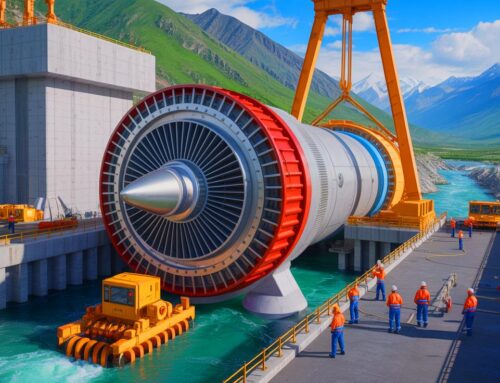New survey shows Utahns support environmental protections, think politicians could do more
July 6, 2025
LOGAN — With environmental, energy and land use considerations at the forefront of recent national and state political discussions, a new survey shows Utahns broadly support environmental protections.
The Utah State University Community and Natural Resources Institute conducted a survey that represents the responses of 468 households from 26 of Utah’s 29 counties.
“Utah’s people and environment are currently experiencing significant changes as the population continues to grow, droughts and flooding pose threats to agriculture, air quality leads to health concerns, energy needs rise, and public lands see increased use. Action is needed to address these changes, especially given how rapidly they are occurring,” said the report.
Key issues of concern identified by respondents include the drying up of the Great Salt Lake (55%), loss of biodiversity (48%), climate change (47%), population growth (42%), drought and water scarcity (42%), air quality (41%) and declining snowpack (41%).
Here’s what Utahns had to say, more specifically.
Water
Utah Gov. Spencer Cox last week called on Utahns to pray for rain, as drought conditions worsened across the state and wildfire risks escalated.
Unsurprisingly, people are also concerned about water.
The survey shows 67.5% of respondents rated the state’s water crisis as a 7 or higher on a 10-point severity scale.
When asked why, population growth (58%), lack of precipitation (48%), agricultural uses (38%) and water management policies and water rights (35%) were the top reasons identified.
Air
The American Lung Association released its 2025 “State of the Air” report in April, with bad marks for Utah, ranking the Salt Lake City metro area (including Provo and Orem) as the ninth-worst in the nation for ozone pollution.
Like water, Utahns seem to agree, as nearly 77% of respondents indicated that they agree or strongly agree with the statement that air pollution is a serious issue and poses a significant problem. Further, over 71% of respondents indicated they agree or strongly agree that they are concerned about air pollution causing more cases of long-term health issues like asthma, lung cancer and throat cancer.
Over half of the respondents said it’s possible they’ll experience health problems from air pollution in the future.
Land
Land has been a hotly contested issue in the Beehive State and beyond, particularly considering Utah Sen. Mike Lee’s now-withdrawn provision from the “One Big Beautiful Bill” that would’ve sold between 2.2 million and 3.3 million acres of federally owned land.
After it was withdrawn, the Center for Biological Diversity issued a statement calling it the “biggest attack on public lands in history.”
The discourse around the provision was rampant, particularly in a state like Utah, where the tourism sector is such a massive economic driver, with $12.71 billion spent by visitors in 2023, according to the survey report.
This tourism — much of which is dependent on the availability of public lands — also supported nearly 160,000 jobs and led to $2.35 billion in state and local tax revenue.
In a state known for its Big 5 national parks and Greatest Snow on Earth, it shouldn’t come as a surprise that 87% of Utahns said outdoor recreation options and access to wilderness and public lands are moderately, very or extremely important to them.
While 75% of respondents indicated that they are satisfied with the environmental conditions of Utah’s outdoor recreation sites 70% said they are willing to change their plans or behavior to help preserve the environmental condition of Utah’s outdoor recreation sites.
Great Salt Lake
The Great Salt Lake is at risk of drying up, in turn causing massive biodiversity losses, worsening air pollution and altering weather patterns.
It’s no secret among Utahns, either, as a large majority of people (87%) are aware of the lake’s worsening conditions.
Additionally, 76% of respondents are somewhat or very aware of agriculture as one of the main drivers of this problem.
Top concerns associated with the drying of the Great Salt Lake include harms to migrating birds/other species (89%), harm to human health (87%), loss of the lake’s intrinsic value (85%), harm to agriculture from dust (81%), harmful algal blooms (81%), harm to the ski industry (76%), and harm to lake recreation/tourism (74%).
How is Utah doing?
Another component of the survey essentially asked respondents if they think politicians are doing enough to address environmental issues facing the state, country and world.
About 55% of respondents indicated that they believe environmental regulations in the U.S. need to be somewhat or a lot stronger, and 79% of respondents are in favor of protecting the environment even if it causes slower economic growth.
Specific to Utah, respondents expressed the state’s politicians aren’t doing enough on a handful of environmental issues, including poor air quality (76%), population growth (70%), drought and water scarcity (70%) and the drying up of the Great Salt Lake (68%).
“Once again, our positive response to the survey from residents across the state helps us to be confident that we are accurately capturing a diversity of Utahns’ perceptions and experiences so it can be useful to decision-makers,” Jessica Schad, director of USU’s Community and Natural Resources Institute, said in a news release.
The Key Takeaways for this article were generated with the assistance of large language models and reviewed by our editorial team. The article, itself, is solely human-written.
Related topics
Search
RECENT PRESS RELEASES
Related Post


